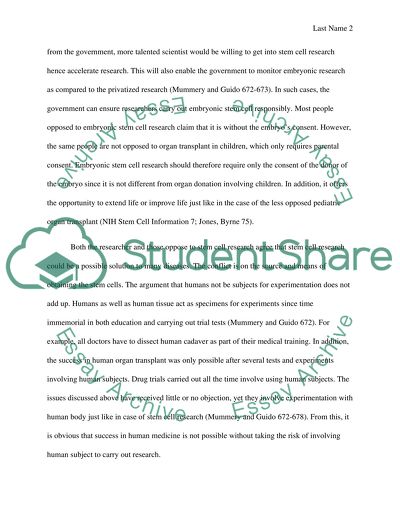Cite this document
(“Stem Cell Research Essay Example | Topics and Well Written Essays - 1500 words - 1”, n.d.)
Retrieved from https://studentshare.org/english/1449666-stem-cell-research
Retrieved from https://studentshare.org/english/1449666-stem-cell-research
(Stem Cell Research Essay Example | Topics and Well Written Essays - 1500 Words - 1)
https://studentshare.org/english/1449666-stem-cell-research.
https://studentshare.org/english/1449666-stem-cell-research.
“Stem Cell Research Essay Example | Topics and Well Written Essays - 1500 Words - 1”, n.d. https://studentshare.org/english/1449666-stem-cell-research.


